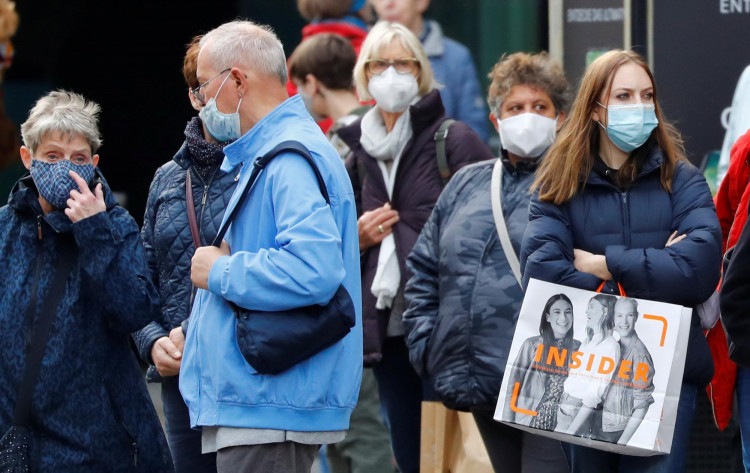German doctors are scrambling to verify if the new COVID-19 mutation among 35 hospital patients in the ski town of Garmisch-Partenkirchen in southern Bavaria is more contagious than the B.1.1.7 strain currently the world's most infectious.
The unknown COVID-19 variant was discovered in 35 out of 73 newly infected patients at the Klinikum Garmisch-Partenkirchen (Garmisch-Partenkirchen Medical Center), a 485-bed hospital with state-of-the-art diagnostic and therapeutic equipment. Hospital officials believe the mutation is different from recently discovered and highly-contagious variants in the United Kingdom and South Africa.
The emergence of the new mutation comes at a time when daily infections in Germany are on the decline. New infections have decreased over the past few days, relieving the intense pressure on overworked intensive care units.
The number of confirmed COVID-19 cases in Germany rose by 7,141 on Monday, based on data from the Robert Koch Institute (RKI) for infectious diseases. This number is 5,000 fewer than the previous Monday.
Dr. Clemens Stockklausner, the hospital's deputy medical director, said there is as yet no understanding as to whether the mutation made the virus more contagious. This is the case with B.1.1.7 discovered in the UK last September and another mutation uncovered in South Africa.
"At the moment we have discovered a small point mutation ... and it is absolutely not clear whether it will be of clinical relevance," according to Stockklausner. "We have to wait for the complete sequencing."
Samples of the mutation are being examined at the Charité-Universitätsmedizin Berlin (Charité University Hospital) renowned for its medical research.
It's still unclear how contagious, or how deadly, the new variant is, according to Dr. Frank Niederbühl, managing director of the Garmisch-Partenkirchen Medical Center.
"The mere fact that it's a new variant doesn't mean it's more infectious." said Niederbühl.
Medical experts are convinced the new variant does not negate the effectiveness of COVID-19 vaccines approved for use such as the one developed by Pfizer/BioNTech.
Health Minister Jens Spahn said intensified testing of cross-border commuters should be introduced to help prevent new variants entering Germany.
The mutation in Bavaria was detected a day before Chancellor Angela Merkel and Germany's 16 state premiers decided to extend the lockdown until Feb. 14 set from an earlier date of Jan. 31 .
The new, tougher measures announced Tuesday will also see people wearing face masks in shops and on public transport. The lockdown will result in the closure of most shops, schools and non-essential businesses.
"Now is the time to take preventive measures against the threat of this virus," said Merkel after meeting the state premiers.






